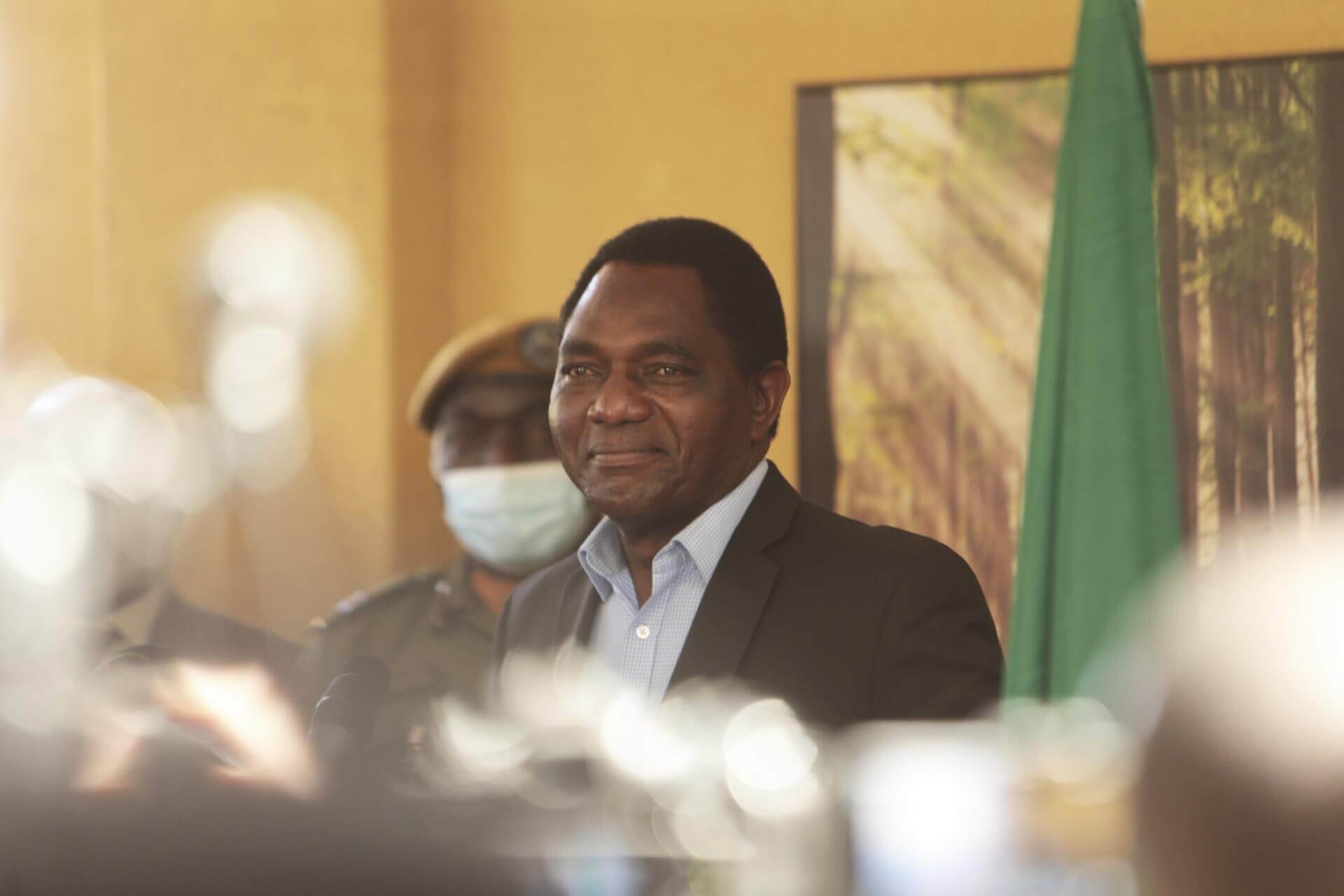Opposition leader Hakainde Hichilema secured a surprise landslide victory in Zambia’s presidential election, defeating incumbent President Edgar Lungu, who was seeking a second term in office. He won 2,810,757 votes to Lungu’s 1,814,201. Hichilema has run for office on six previous occasions and lost to Lungu by a narrow margin of 100,000 votes in 2016.
Lungu, for his part, conceded feat, congratulating his “brother” Hichilema for becoming the country’s seventh president. That being said, he has also levelled allegations of fraud, particularly in opposition strongholds.
Prior to the results being announced, Lungu said that the election was “not free and fair,” pointing to incidents of violence in opposition-held regions. His special assistant, Isaac Chipampe, released a statement saying, “The general election in three provinces, namely, Southern Province, North Western Province, and Western Province, were characterised by violence, rendering the whole exercise a nullity.”
The statement went on to claim: “With polling agents having been attacked and chased from polling stations, we were reduced to competing in seven provinces while our opponent was contesting in 10 provinces.”
Lungu now has seven days to file an appeal with the Constitutional Court. However, international observers have said that the election was transparent and peaceful and that any restrictions on freedom were imposed by the Lungu government.
Back in December, two citizens attending a rally by Hichilema were shot dead by police, which followed the arbitrary arrest of five members of his party two weeks earlier.
Furthermore, Hichilema was often barred from campaigning in certain areas under the guise of coronavirus restrictions.
This led to a political volatility ahead of the election and resulted in clashes between voters and security forces. Lungu deployed the military to maintain order and increased army presence in three provinces. He also ordered the restriction of internet access ahead of the polls.
Against this backdrop, it appears that the population was enthusiastic about the possibility for change, with voter turnout recorded at 70.9%, a huge leap from 57.7% in 2016. Therefore, it is no surprise that Hichilema’s victory resulted in wild celebrations by thousands on the streets of Lusaka.
Following his victory, president-elect Hichilema said he would “foster a better democracy, rule of law, restoring order, respecting human rights, liberties, and freedoms” and get rid of the “brutal regime” of Lungu. He further vowed to be a “president of all Zambians, of those that voted for me and of those that did not.”
United Party for National Development (UPND) party leader Hichilema also pledged to bring an end to the suppression of political opposition, pointing to the fact that he himself has been arrested 15 times.
The country is in the midst of a spiralling economic crisis and recently defaulted on billions of dollars of debt, and continues to owe over $12 billion in external debt, or 80% of its GDP. Although a rise in copper prices has fuelled some optimism about an economic recovery, inflation remains at an all-time high.
Zambia is Africa’s second-largest copper producer, but low commodity prices have heavily impacted the country’s economy. This has been compounded by “continuous power outages and insufficient tax revenue,” all of which have left citizens highly disillusioned.
Lungu first came to power in the 2015 presidential by-election after ex-President Michael Sata’s untimely death while in office. He was then re-elected in 2016 after beating Hichilema.
Zambian Opposition Leader Hichilema Secures Surprise Landslide Victory, Defeating Lungu
Lungu has said that the election was “not free and fair,” pointing to incidents of violence in opposition-held regions.
August 17, 2021

Zambian president-elect Hakainde Hichilema SOURCE: AP PHOTO
